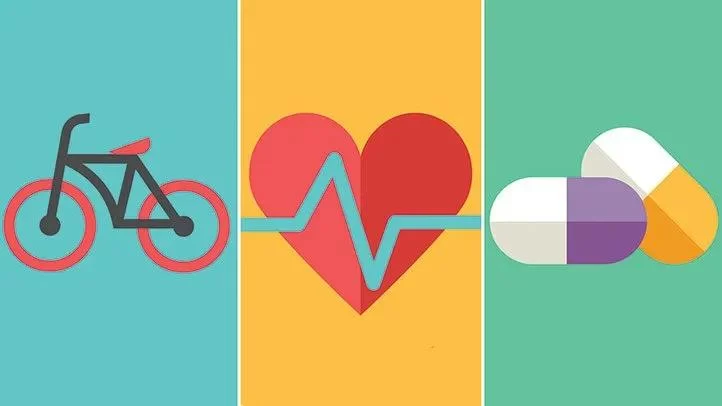- Stress Impact on Heart Disease Development and Progression
- Physiological Effects of Stress on Cardiovascular Health
- Proven Strategies for Managing Stress to Protect Heart Health
- Real-Life Examples Showing Benefits of Stress Management
- HeartCare Hub Resources for Stress and Heart Health Support
1. Stress Impact on Heart Disease Development and Progression
Stress is an increasingly recognized factor influencing the risk and progression of heart disease. Whether caused by work pressures, personal challenges, or chronic life difficulties, prolonged stress can directly and indirectly affect cardiovascular health. The connection between stress and heart disease is complex, involving behavioral, hormonal, and physiological pathways.
Chronic stress triggers the release of stress hormones like cortisol and adrenaline. These hormones prepare the body for a “fight or flight” response but, when elevated over long periods, can lead to harmful effects such as increased blood pressure, inflammation, and adverse changes in blood vessels.
Individuals with ongoing stress often develop habits that compound heart disease risk, such as unhealthy eating, smoking, reduced physical activity, or poor sleep quality. Understanding how stress contributes to heart disease helps clarify why stress management should be an essential part of cardiovascular care.

1.1 Behavioral and Emotional Links to Heart Health
Beyond direct physiological impacts, stress influences mental health, which in turn affects heart disease risk. Anxiety and depression are common companions of chronic stress and are independently linked to worse heart outcomes. Emotional well-being is thus intertwined with cardiovascular wellness, making stress management a holistic priority.
Deborah Heart and Lung Center
deborah heart and lung center
200 Trenton Rd, Browns Mills, NJ 08015, USA

2. Physiological Effects of Stress on Cardiovascular Health
When the body responds to stress, it activates the sympathetic nervous system, increasing heart rate and constricting blood vessels. This acute response is useful short-term but problematic if sustained. Persistent sympathetic activation can contribute to hypertension, endothelial dysfunction, and the acceleration of atherosclerosis.
In addition, chronic stress influences inflammatory pathways. Elevated inflammatory markers like C-reactive protein (CRP) are commonly found in people under long-term stress and are known contributors to plaque formation in arteries.
2.1 The Role of Cortisol and Other Hormones
Cortisol, often called the stress hormone, plays a key role in regulating metabolism and immune responses. Under chronic stress, cortisol levels may remain elevated, disrupting glucose metabolism, increasing abdominal fat, and promoting insulin resistance—all of which increase cardiovascular risk.
This hormonal imbalance highlights why stress management isn’t just about feeling better emotionally but is critical for maintaining heart health at a biological level.
3. Proven Strategies for Managing Stress to Protect Heart Health
Effective stress management techniques are essential tools for anyone concerned about heart disease. These strategies not only improve quality of life but also lower cardiovascular risk markers.
3.1 Mindfulness and Relaxation Techniques
Practices such as mindfulness meditation, deep breathing exercises, and progressive muscle relaxation have been shown to reduce cortisol levels and improve heart rate variability—a marker of cardiovascular resilience.
3.2 Physical Activity and Exercise
Regular moderate exercise serves as a natural stress reliever by releasing endorphins and improving vascular function. Even daily walks or yoga can significantly reduce stress and benefit heart health.
3.3 Social Support and Counseling
Building strong social connections and seeking professional counseling or cognitive behavioral therapy (CBT) can help individuals develop healthier coping mechanisms to manage stress effectively.
3.4 Lifestyle Adjustments
Reducing caffeine and alcohol consumption, prioritizing sleep hygiene, and maintaining a balanced diet rich in heart-healthy nutrients contribute to lower stress levels and better cardiovascular outcomes.
4. Real-Life Examples Showing Benefits of Stress Management
Take the story of Laura, a 48-year-old marketing executive who struggled with hypertension and early signs of heart disease. Her high-stress job left her feeling exhausted and anxious. After integrating stress management techniques such as daily meditation, regular exercise, and therapy sessions, Laura experienced not only reduced blood pressure but also greater emotional stability and improved sleep.
Laura’s case exemplifies how tackling stress can be a transformative component of heart disease prevention and management.
Similarly, a recent study highlighted how patients who participated in structured stress reduction programs saw measurable improvements in arterial health and inflammation levels compared to those who did not.
5. HeartCare Hub Resources for Stress and Heart Health Support
For those seeking to incorporate stress management into their heart care regimen, HeartCare Hub offers comprehensive guidance. From curated recommendations on relaxation tools and fitness programs to expert advice on mental health support, HeartCare Hub provides reliable resources tailored to individual needs.
Integrating these resources with regular medical care empowers individuals to approach heart disease holistically, addressing both physical and emotional well-being for sustained cardiovascular health.






















Hoag Urgent Care Irvine - Sand Canyon
hoag urgent care
16205 Sand Canyon Ave Suite 100, Irvine, CA 92618, USA